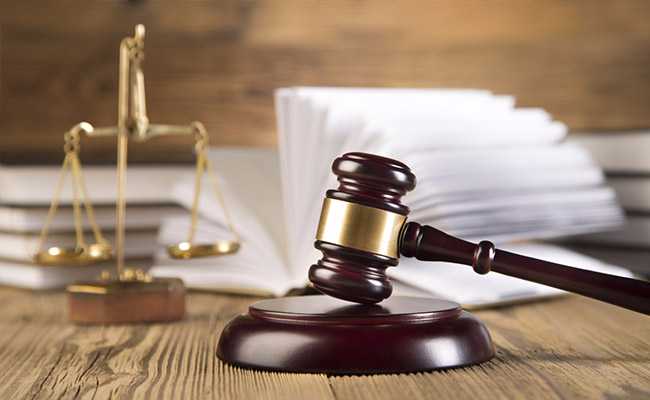
The Islamabad judges wrote a letter to Supreme Judicial Council over ISI interfering. (Representational)
Islamabad:
The Islamabad High Court (IHC) judges have urged the Supreme Judicial Council (SJC) to convene a judicial convention over the alleged interference of Pakistan’s Inter-Services Intelligence (ISI) in judicial matters, according to Geo News.
All seven judges of the IHC, except Chief Justice Amer Farooq, wrote to the Supreme Judicial Council and all judges of the Supreme Court, highlighting, how senior ISI officials have been influencing judicial proceedings and pressuring judges.
In a letter to the SJC, six judges of the IHC–Justice Mohsin Akhtar Kiyani, Justice Tariq Mehmood Jahangiri, Justice Babar Sattar, Justice Sardar Ejaz Ishaq Khan, Justice Arbab Muhammad Tahir, and Justice Saman Fafat Imtiaz–sought guidance from the council on the “interference” of the spy agencies in courts’ affairs.
“We are writing to seek guidance from the Supreme Judicial Council (SJC) with regard to the duty of a judge to report and respond to actions on the part of members of the executive, including operatives of intelligence agencies, that seek to interfere with discharge of his/her official functions and qualify as intimidation, as well as the duty to report any such actions that come to his/her attention in relation to colleagues and/or members of the courts that the High Court supervises,” the letter read.
This came days after the top court declared the removal of former IHC Justice Shaukat Aziz Siddiqui illegal and directed that he may now be considered a retired judge, as reported by Geo News.
“This matter has arisen in the aftermath of the judgment dated 22.03.2024 rendered by the Supreme Court in the matter of Shaukat Aziz Siddiqui vs. Federation of Pakistan (C.P. No. 76 of 2018), in which it has been declared that Justice Siddiqui, who was the senior puisne judge of Islamabad High Court (“IHC”), was wrongfully removed on the basis of a report of the Supreme Judicial Council (“SJC”) dated 11.10.2018, and would be deemed to have retired as a judge of the IHC,” it read.
“Justice Siddiqui had been removed after he had publicly alleged that operatives of the Inter-Services Intelligence (“ISI”), led by Major General Faiz Hameed (DG-C of ISI), were determining the constitution of benches at IHC and interfering with proceedings of the Accountability Court Islamabad,” the letter added.
The verdict further noted that the SJC proceeded against Justice Siddiqui on the “assumption that the truth or falseness of the allegations levelled” by the former judge was “irrelevant”.
It also noted that the SJC opined that Justice Siddiqui had failed to substantiate, independently corroborate, substantiate or prove the allegations levelled by him, according to Geo News.
The IHC judges, in their letter, noted that the code of conduct for judges prescribed by SJC does not guide on how they “must react to and/or report incidents that are tantamount to intimidation and interfere with judicial independence”.
The judges further said that they “believe it is imperative to inquire into and determine whether there exists a continuing policy on the part of the executive branch of the state” to interfere in judicial affairs.
Additionally, the IHC judges urged that a judicial convention be called to consider the matter of “interference of intelligence operatives with judicial functions and/or intimidation of judges in a manner that undermines the independence of the judiciary.”
Moreover, the judges further said, “Such institutional consultation might then assist the Supreme Court to consider how best to protect independence of the judiciary, put in place a mechanism to affix liability for those who undermine such independence, and clarify for the benefit of individual judges the course of action they must take when they find themselves at the receiving end of interference and/or intimidation by members of the executive.”
(Except for the headline, this story has not been edited by NDTV staff and is published from a syndicated feed.)




